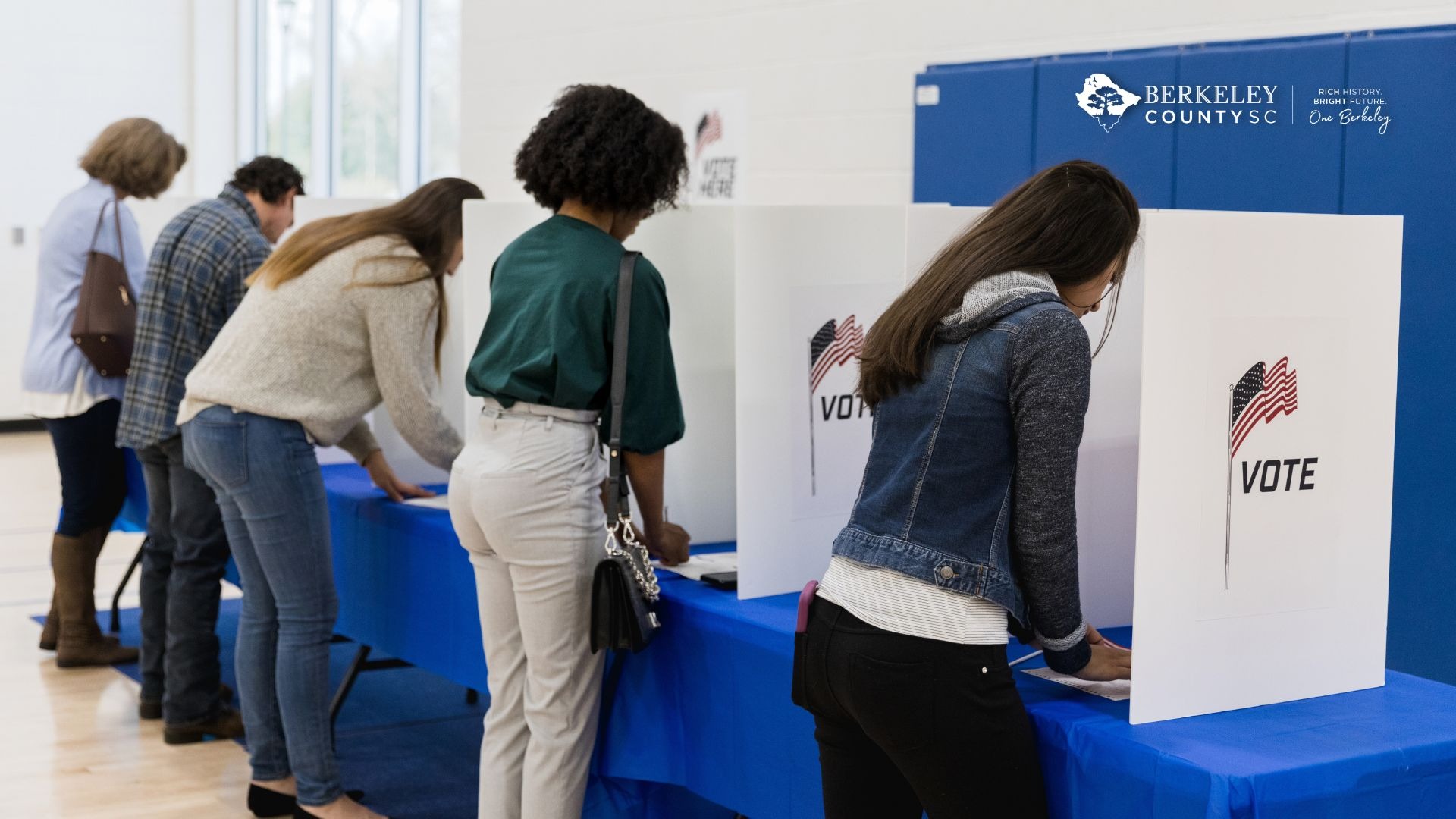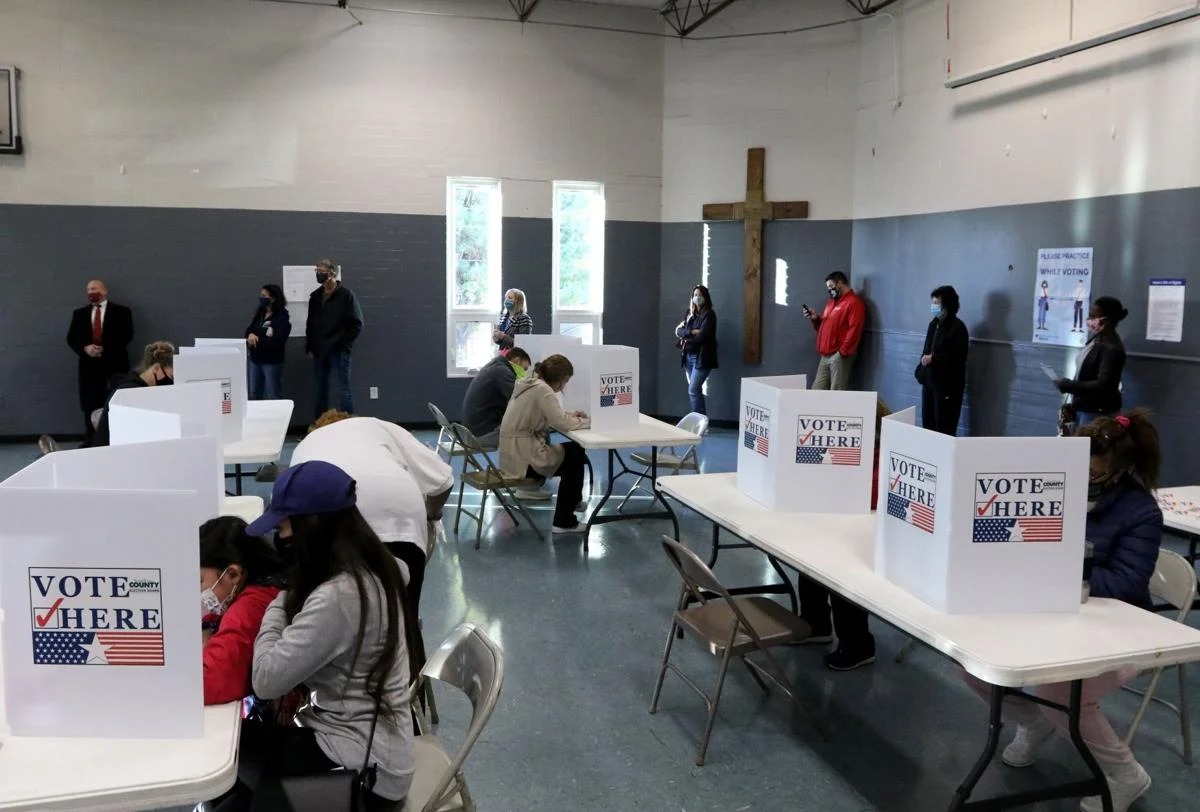This year presents a critical juncture as more than half of the global population prepares to participate in elections, and the implications for our planet are profound.
The escalating environmental crisis adds urgency, with 2022 setting a record as the hottest year, surpassed by 2023, and the anticipation that this year will surpass both.
We find ourselves not merely in the era of global warming but knee-deep in what United Nations Secretary-General Antonio Gutierrez terms the “era of global boiling.”

Voters in US (Credits: Berkeley County Government)
The intersection of democracy and climate action is unmistakable, highlighting the interconnectedness of our fragile ecosystems and delicate governing systems.
Recollections of burnt-orange skies in New York City and cataclysmic scenes in submerged Pakistan, my family’s homeland, linger, propelling me as a climate activist.
Devoting my life to combating the climate crisis, I have orchestrated extensive voting campaigns, led climate strikes, and contributed to climate policy at local and international levels, including the United Nations.
The symbiotic relationship between climate action and democracy is evident: increased support for politicians advocating climate justice can propel transformative climate policies to a critical mass.
With elections scheduled in over 50 countries this year, there is a unique opportunity to address the climate crisis, especially in nations disproportionately affected, such as Pakistan, South Africa, and India, and in major polluting entities like India, the European Union Parliament, and the United States.
Democracy emerges as the paramount tool to enact the necessary changes on the scale and urgency demanded by the climate crisis, yet it faces mounting challenges.
My optimism regarding voting rights was buoyed by the tenacious efforts during the 2020 election cycle, overcoming systemic voter suppression in Georgia.
The need for reform became more apparent after the insurrectionists’ assault on the Capitol, attempting to subvert the election’s outcome. However, accountability for the January 6 insurrection has been lacking, and the For the People Act, a pivotal voting rights bill, has languished in Congress.
Instead, 300 restrictive voting bills surfaced across 45 states last year, and former President Trump’s mugshot is commodified as campaign merchandise.
The global threat of authoritarianism persists, particularly in petrostates where authoritarian regimes and fossil fuel interests thrive. Major fossil fuel exporters like Venezuela and Russia are conducting elections, yet their citizens are unlikely to experience free and fair representation. Russia’s attempts to destabilize Ukraine further underscore the unreliability of the global fossil fuel market.
As the leading global oil producer, the United States finds itself straddling the line between democracy and authoritarianism, a complex scenario amid the escalating climate crisis and the impending 2024 election.
To assert its position as a global democratic leader, the U.S. must take bolder action on the climate crisis. While the Inflation Reduction Act, unveiled at the White House, allocates record funding for climate infrastructure, it paradoxically supports fossil fuel development, leading to disillusionment among young voters.
Collective power should not be underestimated; when given a choice, people opt for climate justice. Instances such as the ousting of Brazil’s Prime Minister Jair Bolsonaro for devastating the Amazon and a democratic referendum in Ecuador halting drilling in a biodiverse region underscore the impact of citizens’ choices.
A Yale-coauthored study reveals that 44 percent of U.S. registered voters are more likely to support climate justice advocates, indicating a growing influence of climate activism.
Representative democracy holds the potential for transformative change. Currently, 25 percent of registered U.S. voters express a willingness to join campaigns advocating climate justice, a percentage that can burgeon given the right mobilization.
With only 1 percent currently engaged, the climate justice movement is in its infancy, poised for substantial growth.
The imperative solution is clear: a mass mobilization to compel politicians into action. As we confront global authoritarianism, taking to the streets and mobilizing voters becomes crucial to addressing the global climate crisis.
The fate of our democracy and planet hangs in the balance, necessitating concerted efforts to effect transformative change.
























